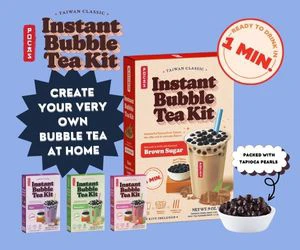The retailer-supplier relationship is, almost by definition, both adversarial and collaborative. The two parties work together to sell more products and meet the needs of their joint shoppers. But retailers are also advocates for those shoppers when negotiating pricing, promotions, and other marketing activities, the discussions for which can get very heated.
I still remember my first experience at a buying meeting, which initially was very cordial but devolved quickly into a lot of shouting and cursing.
The relationship between retailers and suppliers varies depending on the time of the year, the state of the economy, and several other factors. Across all of these variables, it’s important for retailers to ask relevant questions to ensure a successful and mutually beneficial partnership.
Let’s start with a few product-related questions.
Perhaps the most crucial question for retailers to ask is how the supplier stands behind the products it sells. This covers a lot of ground, including the key features and specifications of the product, any available variations or options, operational and technical standards, and even warranty or guarantee policies.
For perishables, there is also the product’s expected shelf life. Underlying all of these issues is this simple question – What are the risks I’m taking by selling your product?
Related Article: Time and Location Remain Key for Food Retailers
Next, retailers should ask the pricing and payment questions that will define the financial arrangements, including whether there are volume discounts, terms, and any additional fees or charges.
Right after these are the supply and logistics questions covering lead time for product delivery, frequency, minimum order quantity, packaging, and shipping/pickup options.
Last in this group are quality questions, which focus on safety and testing, as well as the supplier’s compliance standards and certifications.
To this point, the questions have been pretty straightforward, but nonetheless critical to building a low-risk agreement between retailers and suppliers.
The next set can highlight the positive outcomes of the relationship or uncover potential limitations.
The communication and support questions cover how responsive the supplier’s retail support mechanism is, what channels of communication will be used, and who is responsible for addressing problems.
A dedicated point of contact is critical and needs to be established from day one, so any hesitancy on this point should raise alarms.
Last is the fundamental business relationship questions that guide the entire go-to-market strategy.
Can the supplier provide references or testimonials from other retailers they work with?
Are there any restrictions on selling competing products? What is the supplier’s approach to resolving disputes or conflicts?
The bottom-line question here is – What are the possible outcomes I can face in a supply relationship with you, and what are you going to do to ensure they are positive for us?
All of these questions should serve as a starting point for retailers to gather important information and make informed decisions when selecting a supplier.
The scrutiny of the relationship needs to be continual.
Only by constantly examining the terms of collaboration between retailers and suppliers can both parties hope to ensure a positive long-term outcome.


